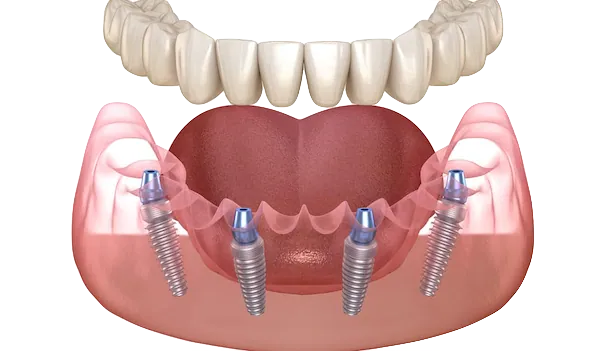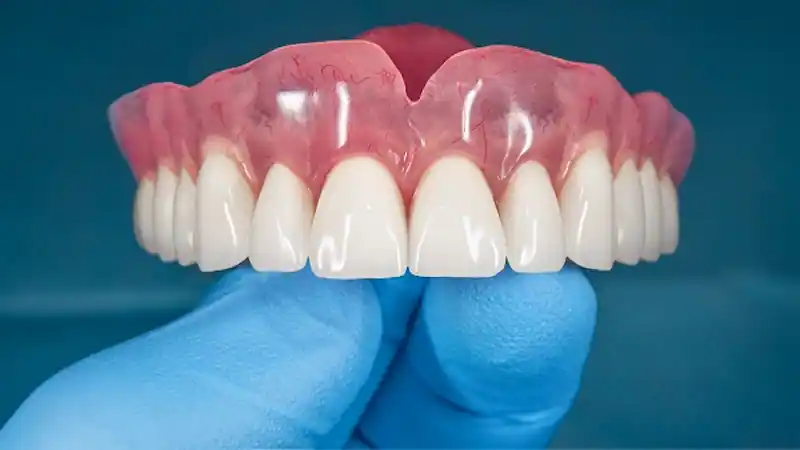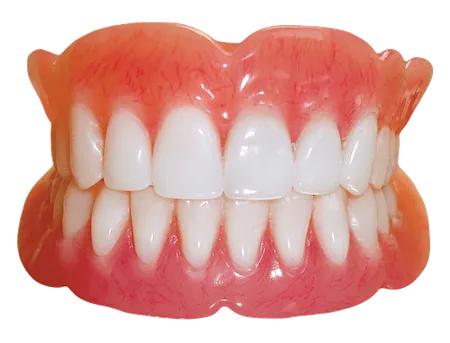Keep in mind that dentures offer a temporary solution that could result in long-term negative consequences, while dental implants provide a more durable option. Nonetheless, because dental implants are long-lasting and easy to maintain, they may be a great recommendation for cancer patients undergoing treatment.
Every year, more than 1.5 million Americans receive a cancer diagnosis, which means that this terrible disease has likely affected someone you know. Cancer doesn’t discriminate and can affect grandparents, aunts, uncles, cousins, friends, and even young children.
The toll that cancer takes on the body is undeniable, leaving patients exhausted and depleted in every possible way. They may lose their hair, experience muscle atrophy, develop ashen skin, suffer from brittle bones, bleeding gums, and even tooth loss.
Enduring a cancer treatment regimen comes with numerous challenges, and one of the most significant is self-care while dealing with the harsh side effects of radiation and chemotherapy. These side effects can cause oral health problems that have a negative impact on both tooth and bone health.
Regrettably, the oral health problems caused by cancer treatment can have far-reaching consequences beyond the mouth. For instance, bad breath can result from an excess of bacteria in the mouth. Additionally, cancer treatment may cause dry mouth as a side effect, making it challenging for saliva to remove bacteria.
The accumulation of bacteria in the mouth can also lead to tooth decay, gum disease, an increased risk of infection, and even pneumonia. This heightened risk of infection combined with a weakened immune system is a dangerous combination for cancer patients undergoing treatment.
Furthermore, wearing dentures can exacerbate severe dental issues for denture wearers during cancer treatment. To prevent problems with the mouth and teeth during treatment, it’s advisable to seek the advice of a dentist specializing in dental oncology.
Prior to delving into the drawbacks of dentures for cancer patients, it’s critical to understand:
- the significance of oral health during treatment;
- the risks of inadequate oral health;
- the measures that can be taken to maintain the health and well-being of the mouth, teeth, and gums.
Preventing the adverse effects that arise during cancer treatment, particularly those related to oral health and digestion, is vital for ensuring the patient’s comfort and overall health throughout the treatment process.
Cancer and oral health
Apart from the numerous ways cancer can affect the body, specific cancer treatments can have unintended consequences that impact the mouth, teeth, gums, and salivary glands of the patient.
Mouth sores and excessive bleeding are common during treatment due to the way cancer treatments target the body at the cellular level. Chemotherapy and radiation can’t distinguish between healthy and malignant cells, causing adverse reactions in healthy cells.
The effects of treatment can vary from person to person, but the mouth, saliva, digestion, and hair cells are the most commonly impacted areas. For instance, the salivary glands play a crucial role in digestion, oral health, and speech, so any negative impacts on them can significantly affect overall oral health. Additionally, gum and tooth problems may lead to speech, digestion, eating, and swallowing difficulties.
During cancer treatment, other problems that may arise include:
- Oral Mucositis
- Excessive Soreness of gums
- Off-Colored Patches In Gums
- Numbness
- Hardened Gums
- Dry Mouth
- Consistent Bad Breath
- Change In Taste
- Infections
- Bone Disease
- Difficulty Swallowing and Chewing
- Tooth Decay
Oral mucositis, an inflammation of the mucus lining in the mouth, can cause severe discomfort and pain, which can be particularly challenging during cancer treatment. This pain adds to the already overwhelming burden of coping with cancer.
What are some warning signs to look out for to prevent serious oral health problems?
Similar to how there are warning signs before a heart attack, it’s crucial to know the potential warning signs of serious oral health problems. Here are some of the signs to look out for:
- Bleeding Gums: Bleeding gums may indicate receding gums or too much bacteria in the mouth and gum lining.
- Pain: Persistent pain or discomfort in the jaw could signify an underlying issue, such as infection or tooth decay.
- Loose Teeth: Permanent teeth should not be loose or wiggly, and experiencing this may be a sign of excessive bacteria or weakening of the bones in the jaw or mouth.
- Color: Discoloration or changes on the surface of the teeth could indicate acid reflux that leads to enamel deterioration or severe damage that may signify tooth decay. This may increase the risk of severe illness and infection in cancer patients.
- Bad Breath: Consistent bad breath may suggest excessive bacteria in the mouth and could be caused by gingivitis, gum disease, tonsillitis, or diabetes. Bad breath can also predict potential future health issues, such as pneumonia and tooth decay.
- Sores: Mouth sores can be caused by bacterial buildup in the mouth, often due to a prevalent food source like food remnants or sugars.
Symptoms such as open sores, sensitivity, and rigidity in the gums and mouth lining may indicate an underlying oral health issue that should be addressed by a dentist. Seeking dental care during cancer treatment is crucial for both long-term oral health and patient comfort.
Maintaining good oral health is crucial during cancer treatment, as eating and digestion can already be difficult. Neglecting oral health can result in permanent damage to teeth and gums, necessitating critical dental care. Moreover, tooth decay, cavities, broken teeth, and gum disease may worsen during cancer treatments. The danger of poor oral health during cancer treatment is the increase of bacteria in the mouth.
While bacteria in the mouth plays an important role in digestion, an excess of it can lead to inflammation and infection, particularly in individuals with compromised immune systems, such as those undergoing cancer treatment. Due to weakened immune responses, the risk of infection can dramatically increase during cancer treatment, making oral health just as crucial as overall health for optimal well-being.
Tooth decay can have serious consequences, as it can spread to the jawbone and compromise its integrity. Radiation treatment is also known to cause and accelerate oral health problems. Saliva plays a crucial role in washing away bacteria and food particles, but radiation treatment can alter its quantity and consistency, leading to an increased risk of cavities, tooth decay, and gum disease.
How to prevent oral health issues during cancer treatment
To prevent oral health problems during cancer treatment, it’s important to address any potential issues beforehand. This means maintaining good oral hygiene by flossing, brushing, and rinsing daily, even on days when you don’t eat much. Excess bacteria growth from leftover food particles in the mouth can have significant impacts on both oral and physical health.
It’s recommended to schedule a dental consultation at least 4 weeks before starting cancer treatment. Make sure to complete any necessary examinations, cleanings, or dental procedures before beginning treatment. It’s also important to take care of any outstanding dental work, such as crowns, fillings, or root canals, before starting treatment. For individuals with braces or other orthodontics, most dentists will recommend having them removed before starting treatment to prevent sore gums and teeth.
If tooth decay or gum disease is already present, permanent solutions such as dental implants may be necessary. However, there is hope for restoring oral health after completing cancer treatment.
Dental implants vs. dentures
In order to understand the advantages of dental implants over dentures, it is important to have a basic understanding of what each of these dental solutions entails.
Dental implants are artificial tooth roots that are surgically implanted into the jawbone to support a replacement tooth or bridge. They are typically made of titanium and are designed to fuse with the jawbone over time, providing a stable and long-lasting foundation for replacement teeth.

On the other hand, dentures are removable prosthetic devices that are used to replace missing teeth. They are typically made of hard resin and are molded to fit the shape of the mouth. Unlike implants, dentures may be more prone to cracking, chipping, and breaking.
One drawback of dentures is that they require daily removal from the mouth for cleaning and storage, which may be inconvenient for some individuals.
Problems with dentures
To avoid potential long-term issues such as inflammation, irritation, and infection associated with oral cancers, alternatives to dentures must be considered. Compared to dental implants, dentures are an external construct in the mouth, resting on the jawbone without affixing into the bone. This lack of pressure on the jaw can compromise its strength and integrity, potentially leading to chewing and eating issues down the road. The absence of teeth where the dentures sit means no bone cell regeneration, resulting in bone loss.
Loose-fitting dentures create space for food and other debris to become lodged in the mouth, promoting bacterial growth that can lead to irritation and infection. This perfect storm of factors can increase the risk of infection and other issues, particularly for individuals with a compromised immune system. Therefore, eliminating any unnecessary risk by considering alternative options is crucial for maintaining overall health during cancer treatment.
Loose-fitting dentures can also create sores and lesions in the mouth and gums, making eating and chewing challenging. For cancer patients, who may already have difficulty eating and chewing due to their treatments, this can further exacerbate the issue.
Moreover, dentures wear down more quickly than natural teeth and dental implants, necessitating replacement every five years. Thus, for those seeking a long-term solution for their oral health and smile, constantly replacing dentures every few years may not be a desirable option.
Benefits of dental implants
Dental implants provide a long-term remedy for tooth decay and loss, in contrast to dentures, and thus can be a superior alternative for patients with illnesses, particularly those undergoing cancer treatment.
Essentially, dental implants are a surgical fixture inserted into the jawbone to support a dental prosthesis, such as a bridge, crown, or other appliance.
Dental implants offer numerous advantages over dentures. For one, they function much like natural teeth and are easier to clean. Additionally, implants are affixed to the jawbone, where they fuse with the bone, strengthening the temporal and masseter muscles of the mandible and preventing bone loss.
Crucially, the implant’s anchoring to the jaw helps maintain the bone’s strength and integrity, thereby keeping the jaw healthy and enabling the patient to continue eating and chewing as they did before the implant was placed.
To summarize
When a person is dealing with the effects of cancer treatment, maintaining oral health can be challenging, particularly if they already have pre-existing dental issues. The side effects of cancer treatments such as dry mouth, inflammation, and increased risk of infection can exacerbate these issues. Therefore, dental oncology is crucial to address these concerns.
If a person has pre-existing dental issues, cancer treatment can worsen them. Therefore, we recommend a safe and reliable option: replacing teeth with at Dental & Implant Centers Of Colorado. Unlike dentures, which offer only a short-term solution with long-term adverse effects, dental implants provide a permanent solution that is easy to clean and maintain.
Additionally, dental implants are anchored to the jawbone, maintaining the integrity of the jaw and eliminating the discomfort caused by loose-fitting dentures. This feature is particularly essential for cancer patients as it allows them to eat and chew normally without any additional pain or discomfort.
Individuals undergoing cancer treatment face numerous challenges, and minimizing the risk of infection and discomfort is crucial for their overall health and mental wellbeing. Managing oral health during cancer treatment can be particularly challenging. To prepare and stay informed about potential oral health issues during treatment, it is essential to consult with a dental oncologist who specializes in oral health and cancer treatment.
At Dental & Implant Centers Of Colorado, we understand the importance of eliminating unnecessary stressors during this challenging time. We are committed to helping individuals navigate the journey of replacing their teeth when undergoing cancer treatment. Our team is always available to answer any questions and guide you through the process of getting full mouth dental implants. Reach out to us today for personalized support and care.





